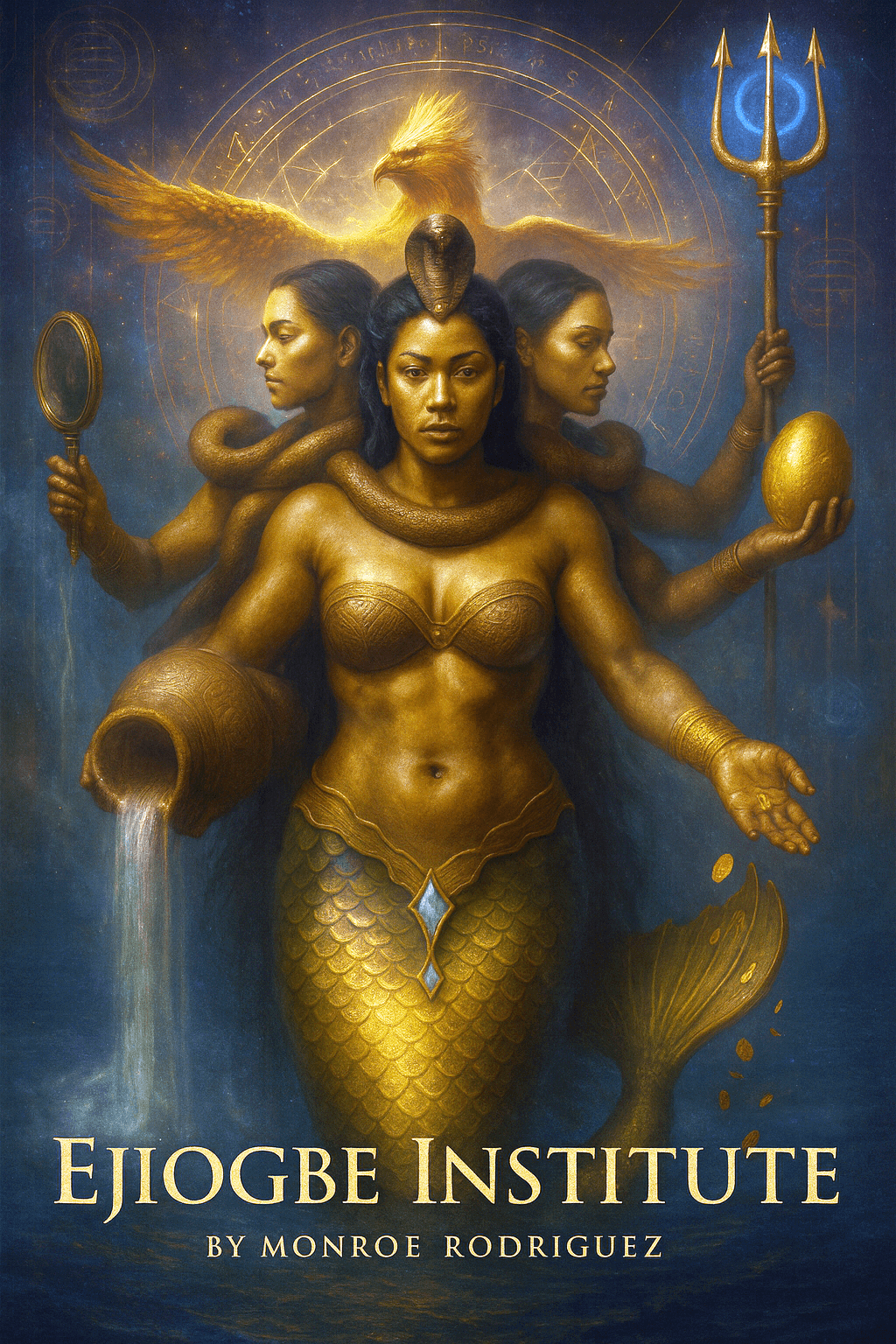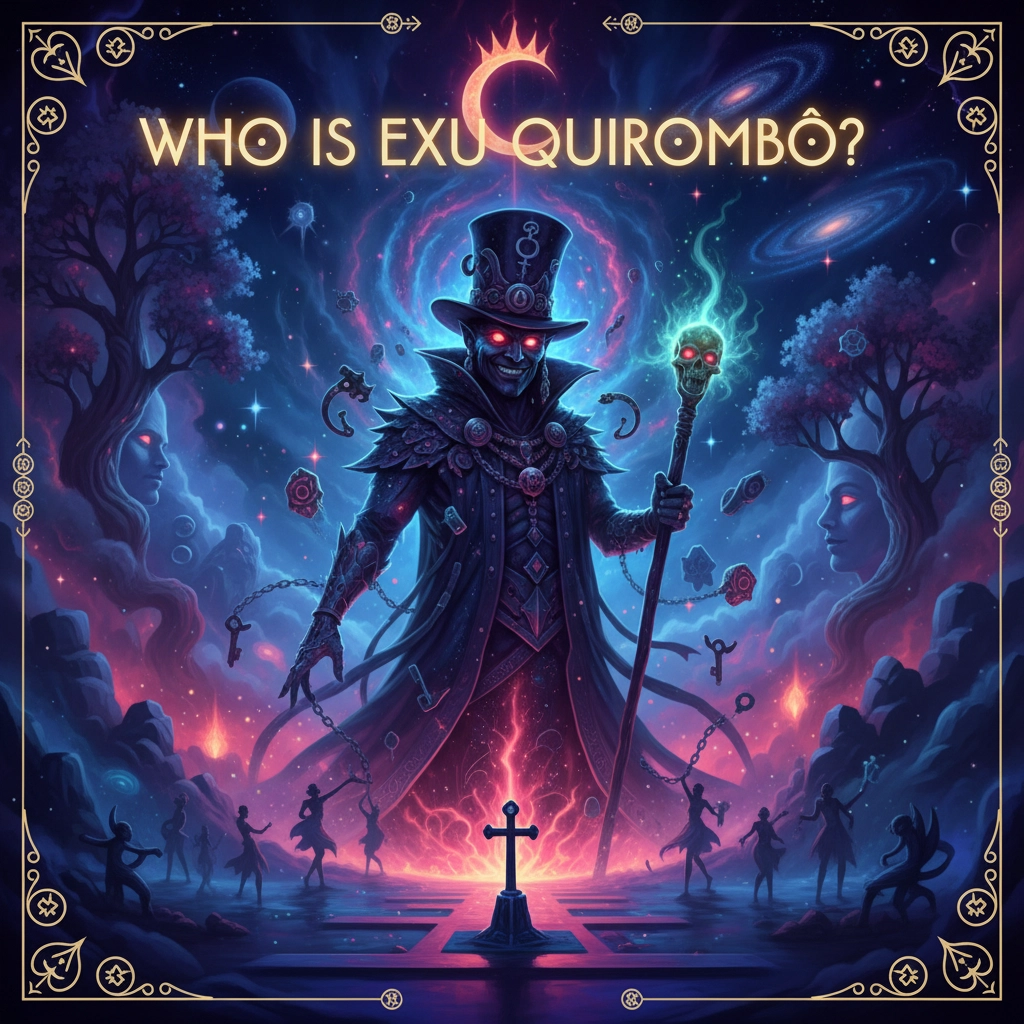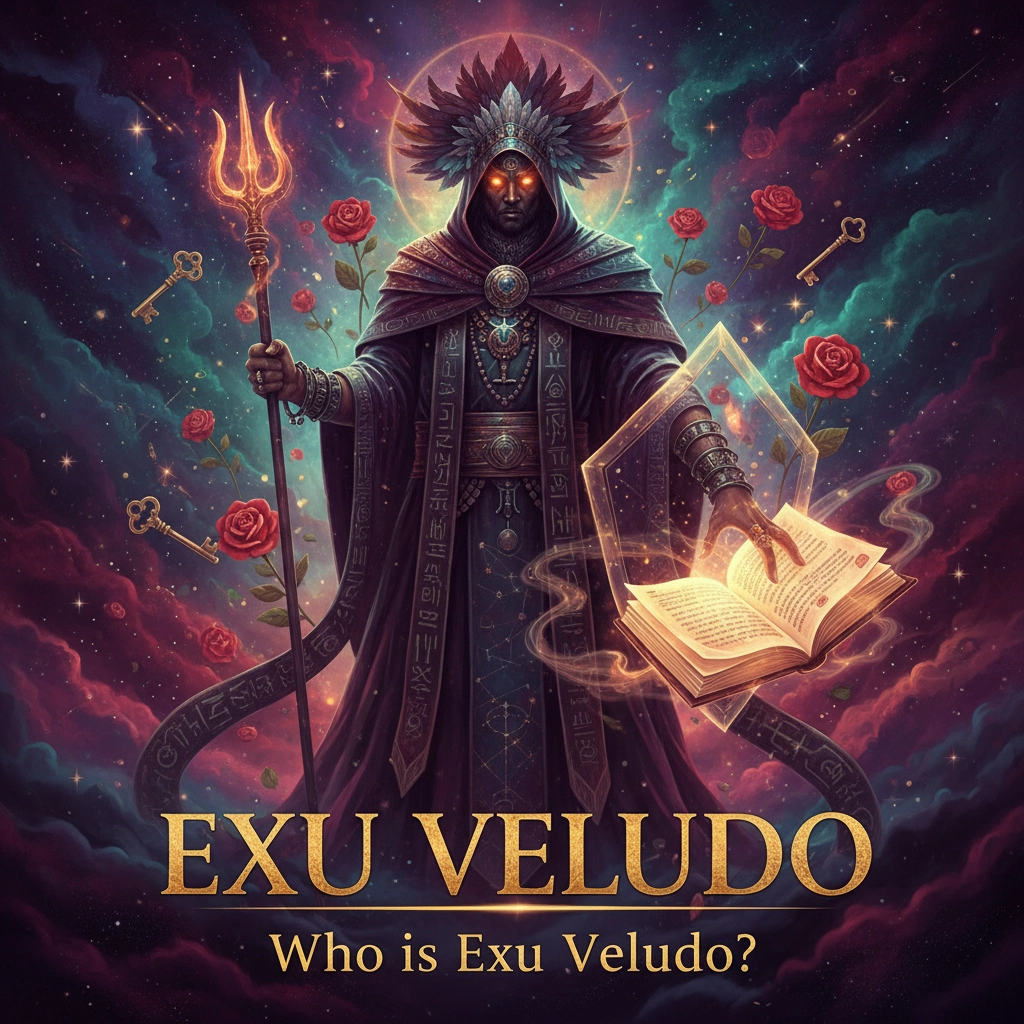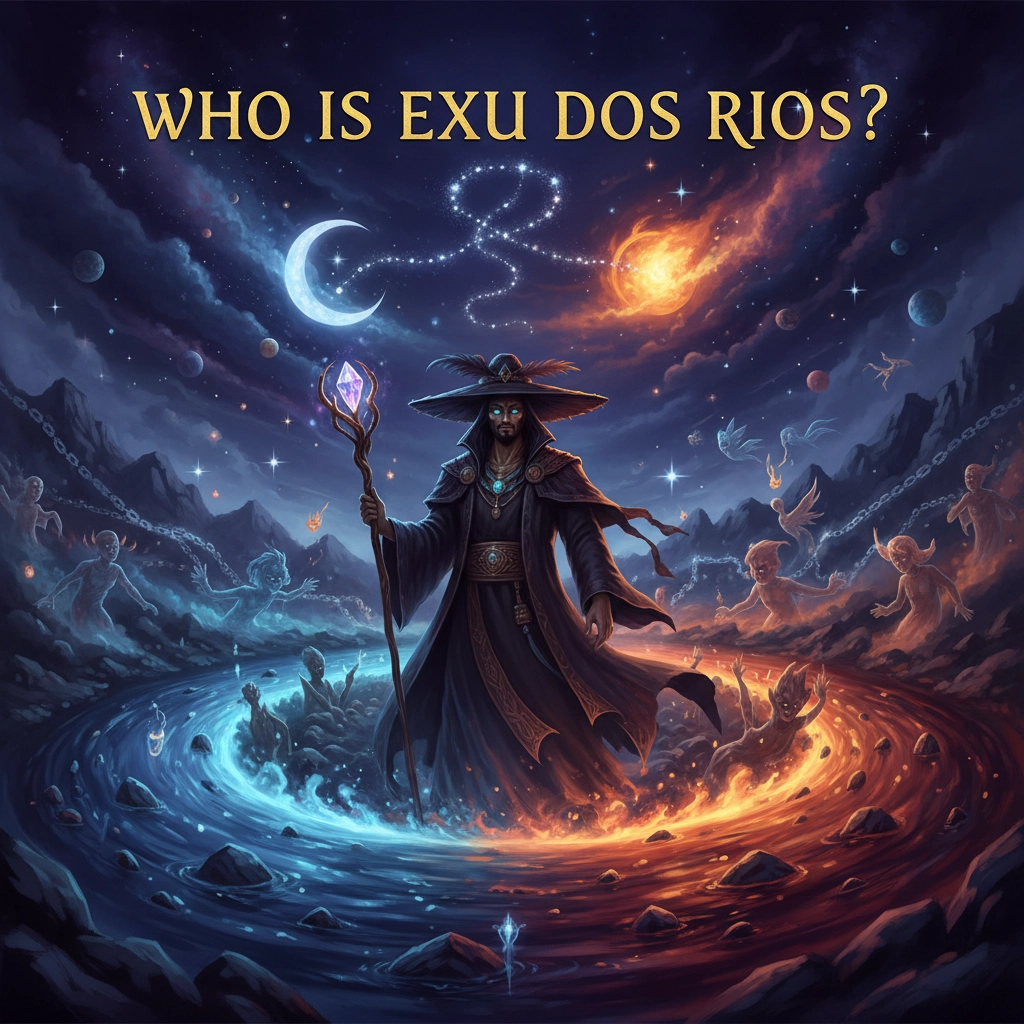What happens when innocence becomes the mask for something far more complex? In the shadowy crossroads of Afro-Brazilian spirituality, few entities challenge our understanding of good and evil quite like Exu Quirombô. Here's a spirit that appears as a child yet wields the knowledge of ancient souls: a paradox that forces us to question everything we think we know about spiritual beings.
Many people believe that all child spirits are inherently benevolent, protective forces in the spiritual realm. But Exu Quirombô shatters this comfortable assumption, standing as one of the most misunderstood and controversial figures in the Quimbanda and Umbanda traditions.
The Deceptive Child of the Crossroads
Picture this: a small figure approaches you at the spiritual crossroads, eyes gleaming with childlike curiosity, hands extended as if seeking comfort or play. Yet beneath this innocent facade lies one of the most specialized Exus in the Linha das Almas: a spirit whose very essence challenges our binary thinking about protection and corruption.
Exu Quirombô operates as an Exu Mirim, belonging to the category of child spirits, but his purpose sets him dramatically apart from his benevolent counterparts. Where other child Exus might guide lost souls toward light and healing, Quirombô specializes in leading young women down what tradition calls "the wrong path": a role that has made him both feared and misunderstood across generations of practitioners.
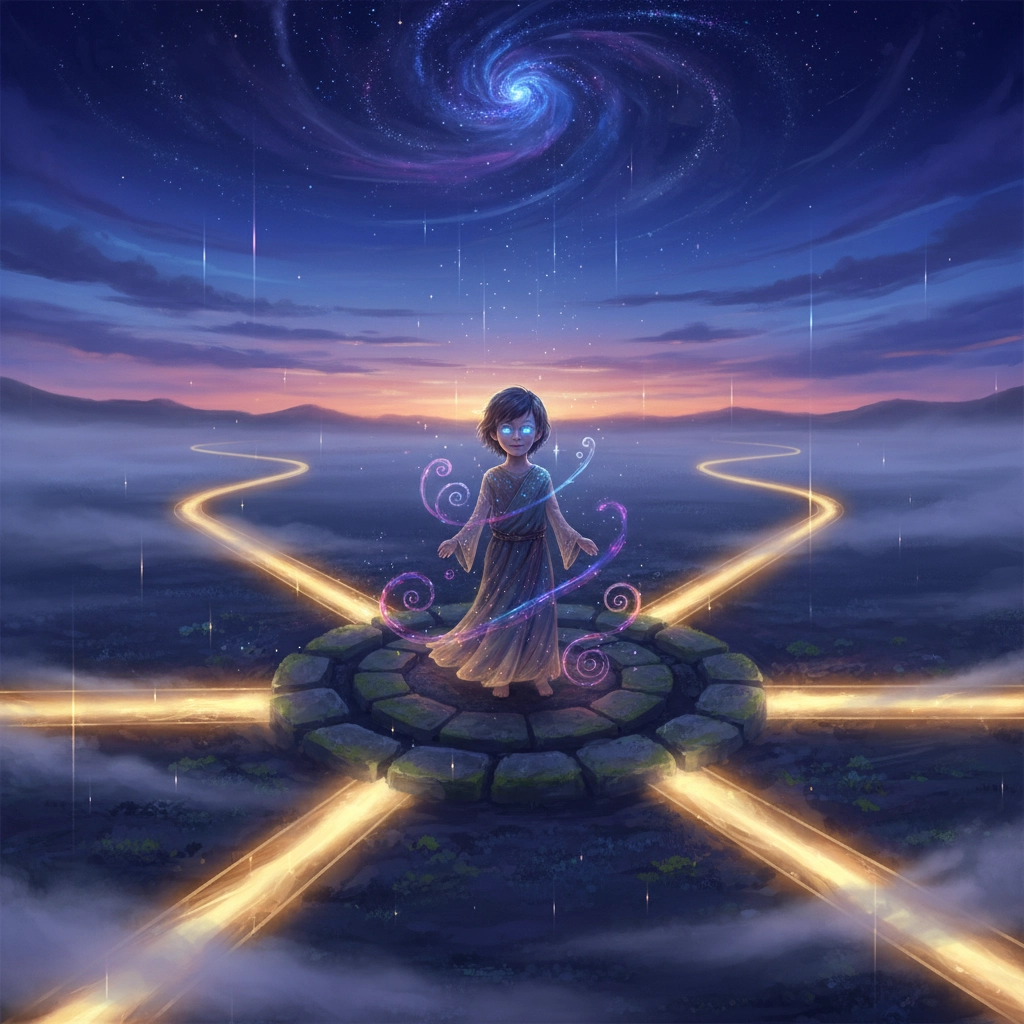
Master of the Linha das Almas
To truly understand Exu Quirombô, we must first grasp the powerful spiritual hierarchy he belongs to. He stands proudly within the Linha das Almas (Line of Souls), a formidable legion under the direct command of Omolu, the great Orisha of disease, healing, and transformation. This isn't just any spiritual family: these are the entities who dwell in the spaces between life and death, the guardians of cemetery gates and the whispers of ancestral wisdom.
The spirits of this line, known as "omulus" due to their subordination to Omulu, carry characteristics that immediately set them apart from other spiritual beings. When they manifest, they don't come gently into our world. Instead, they appear covered in hair, their nails grown into claws, sporting horns that speak of their otherworldly nature, and faces reminiscent of wolves with eyes that burn red with ancient knowledge.
The Cemetery Dweller's Domain
Where does one find Exu Quirombô when the veil between worlds grows thin? The answer lies in the sacred silence of cemeteries: those repositories of memory where the living come to remember and the spirits gather to watch over their earthly legacy. Unlike Exus who prefer crossroads or forest clearings, Quirombô has made the necropolis his kingdom.
This choice of residence isn't accidental. Cemeteries pulse with the energy of transition, grief, and transformation: the perfect environment for a spirit whose work involves guiding others through their own profound changes, albeit not always toward conventional notions of betterment.
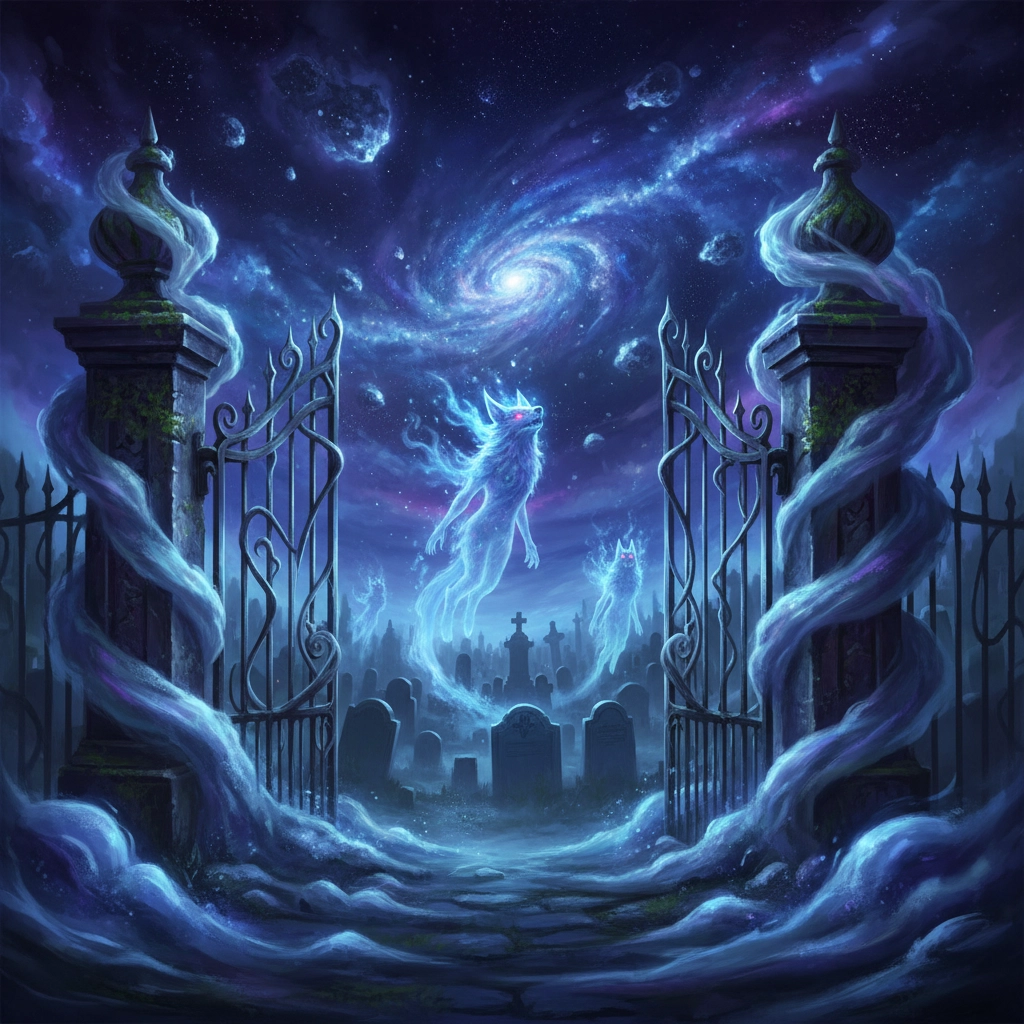
The Paradox of Harmful Guidance
Here's where Exu Quirombô becomes truly fascinating: he represents the uncomfortable truth that not all spiritual guidance leads toward what society deems "good." His specialization in leading young women astray forces us to confront the reality that spiritual forces don't always operate according to human moral frameworks.
But what does "leading astray" truly mean in the context of spiritual work? For Quirombô, this isn't about mindless destruction or evil for evil's sake. Instead, he operates in the realm of choice and consequence, presenting paths that might seem destructive from conventional perspectives but serve larger spiritual purposes: lessons that can only be learned through experience, even difficult ones.
This aspect of his nature makes him particularly controversial among practitioners. Some view him as a necessary force for testing spiritual strength and resolve, while others approach him with extreme caution, recognizing his power to disrupt established patterns and comfortable illusions.
Ritual Practices and Sacred Offerings
Working with Exu Quirombô requires understanding both his childlike nature and his cemetery domain. Traditional offerings reflect this duality: practitioners might leave children's toys alongside more adult items, acknowledging his complex identity. Common offerings include:
- Candies and sweets that appeal to his child-spirit aspect
- Black candles representing his connection to the mysteries of death
- Cachaça or rum, traditional beverages for Exu entities
- Cigars, which many Exus enjoy
- Small toys or games, honoring his youthful presentation
- Red flowers, particularly roses, symbolizing passion and transformation
The timing of these offerings often corresponds with lunar phases, particularly the new moon when the veil between worlds is thinnest and cemetery energies are most potent.
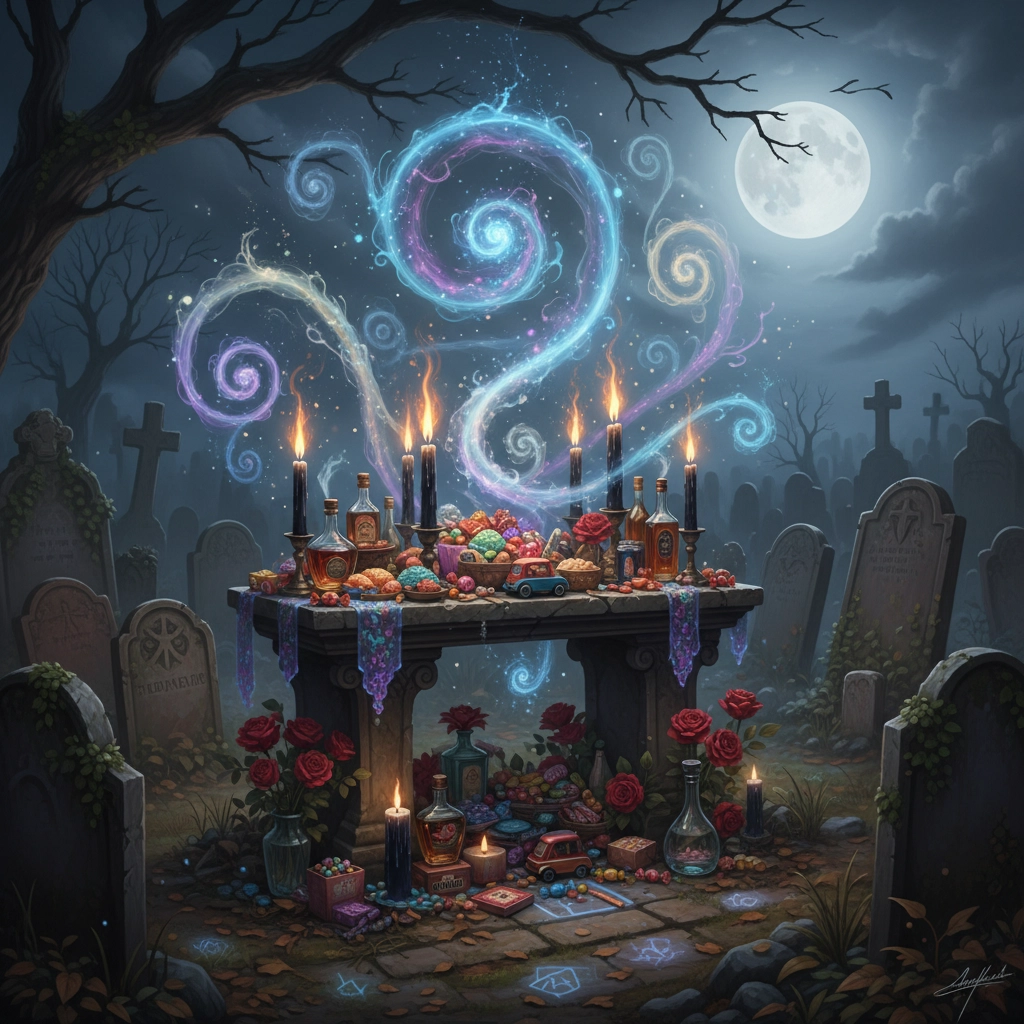
What Sets Quirombô Apart from Other Exus
While all Exus serve as guardians and guides with deep knowledge of astral pathways, Exu Quirombô's specialization makes him unique within the spiritual pantheon. Where most Exus combat negative forces directly, Quirombô operates more subtly, working through temptation, choice, and the natural human tendency toward curiosity about forbidden knowledge.
His child-like appearance serves a specific spiritual function: it disarms those he encounters, making them more likely to trust him and accept his guidance. This isn't deception for malicious purposes, but rather a spiritual tool that allows him to access parts of the human psyche that might otherwise remain closed to more imposing spiritual presences.
Unlike the warrior Exus who announce themselves with dramatic displays of power, or the crossroads guardians who offer clear choices between paths, Quirombô works in the shadows of consciousness, planting seeds of doubt about conventional wisdom and encouraging exploration of alternative perspectives.
Traditional Stories and Manifestations
Practitioners who have worked with Exu Quirombô often describe encounters that begin innocuously but quickly reveal deeper spiritual currents. Stories tell of young women experiencing sudden urges to question authority, to explore aspects of life they had been taught to avoid, or to challenge social expectations in ways that initially appear rebellious but ultimately lead to profound personal growth.
One traditional narrative describes Quirombô appearing to a devoutly religious young woman, encouraging her to explore her own spiritual power rather than simply accepting the limitations imposed by others. While her family initially saw this as corruption, she eventually became a powerful spiritual worker herself, using her experiences to help others navigate their own spiritual awakenings.
The Modern Understanding
In contemporary spiritual practice, Exu Quirombô represents something our ancestors understood but that modern society often struggles to accept: sometimes spiritual growth requires breaking from conventional paths. His work with young women can be understood not as leading them toward destruction, but toward authentic self-discovery that challenges patriarchal limitations and social expectations.
Today's practitioners often approach Quirombô as a spirit of liberation rather than corruption, recognizing that his "wrong path" might actually be the right path for someone whose authentic spiritual nature has been suppressed by societal constraints.

Working with Controversial Spiritual Forces
Engaging with Exu Quirombô requires spiritual maturity and clear intentions. He isn't a spirit for casual curiosity or those seeking easy answers. Instead, he works with individuals ready to question their assumptions, challenge their limitations, and accept responsibility for their choices.
Those who choose to work with him often find themselves confronting aspects of their spiritual path they had previously ignored or suppressed. He serves as a catalyst for transformation that might appear chaotic from the outside but serves essential purposes for spiritual development.
The Wisdom of Spiritual Complexity
Perhaps the most important lesson Exu Quirombô offers is this: spiritual reality is far more complex than our human categories of good and evil suggest. He embodies the truth that growth often requires disruption, that wisdom sometimes comes through difficult experiences, and that authentic spiritual paths rarely conform to conventional expectations.
In a world that often demands simple answers to complex questions, Exu Quirombô stands as a reminder that spiritual forces operate according to laws and purposes that transcend human moral frameworks. He challenges us to expand our understanding of divine work and to recognize that even controversial spiritual forces can serve essential roles in the greater tapestry of existence.
The child-spirit of the cemetery continues his ancient work, reminding us that sometimes the most profound spiritual lessons come wrapped in forms we least expect, from sources we might initially fear to trust. In embracing this complexity, we open ourselves to a richer, more nuanced understanding of the spiritual forces that shape our world.
